- Excellent steer and tenacious power
- High-quality interior and materials
- Imposing styling
- Hyundai parts and ruin an otherwise premium ambience
- Engine is very thirsty
- Packaging behind the B-pillar leaves a lot to be desired
The 2020 Genesis G70 is a thoroughly impressive mid-size luxury sedan and, while the Genesis name might not be fully established in the Australian market yet, it certainly has the on-road presence to raise eyebrows. Sure, the styling is clearly designed to mimic prestigious European brands (a certain wing-badged British brand in particular) but you can’t just swoop in and reinvent the wheel, right?
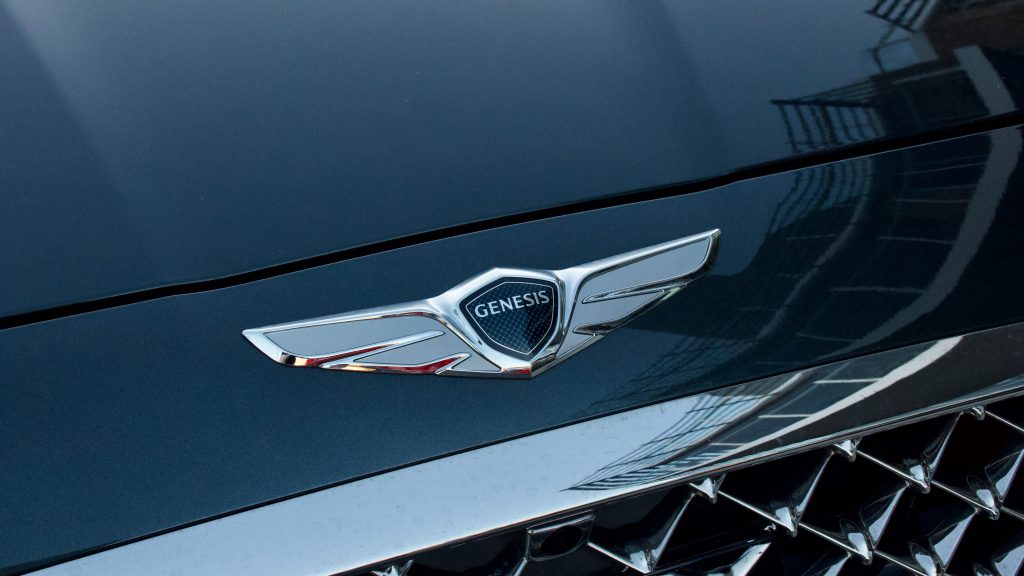

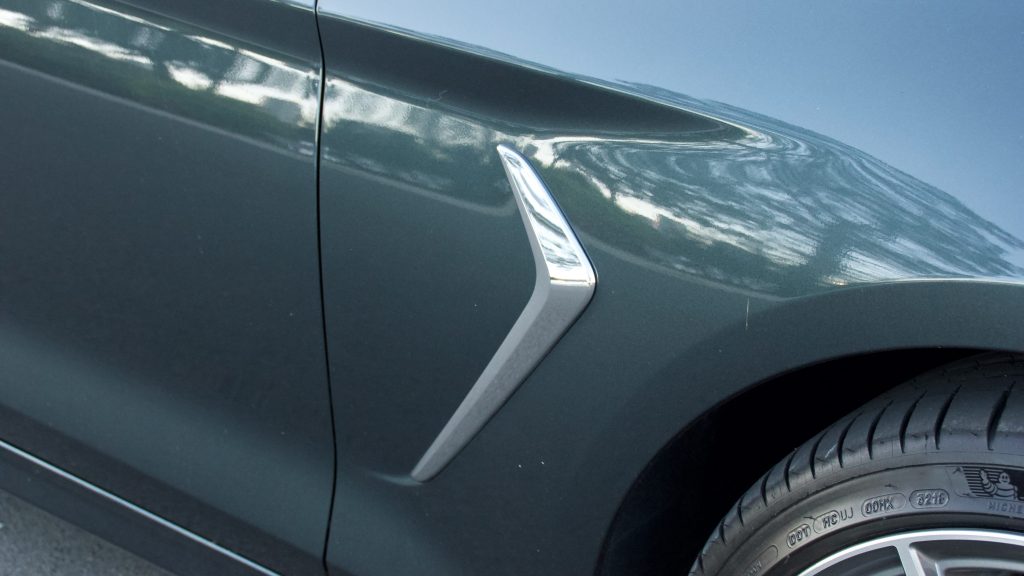
After testing the Genesis G70 2.0T, we came to the conclusion that it’s a strong addition to the luxury segment – bringing handsome styling, good dynamics and a great cabin to a class that’s been largely dominated by the same players for 20 years. So, now we’re trying the G70 in a slightly different flavour with a spicy twin turbo V6 thrown in for good measure. Is it the final piece to complete the G70 puzzle? Let’s find out.
Price & Specs: 7.0/10
In a unique approach compared to the status quo, Genesis has introduced fixed pricing – designed to take away unpleasant haggling from the buying process. Pricing for the G70 range kicks off from $59,300 plus on-road costs for the entry-level 2.0T (see that review here). Next up is the Sport and Ultimate grades which are both available with either the 2.0T or the 3.3T, before topping out with the flagship Ultimate Sport which comes exclusively with the 3.3T.
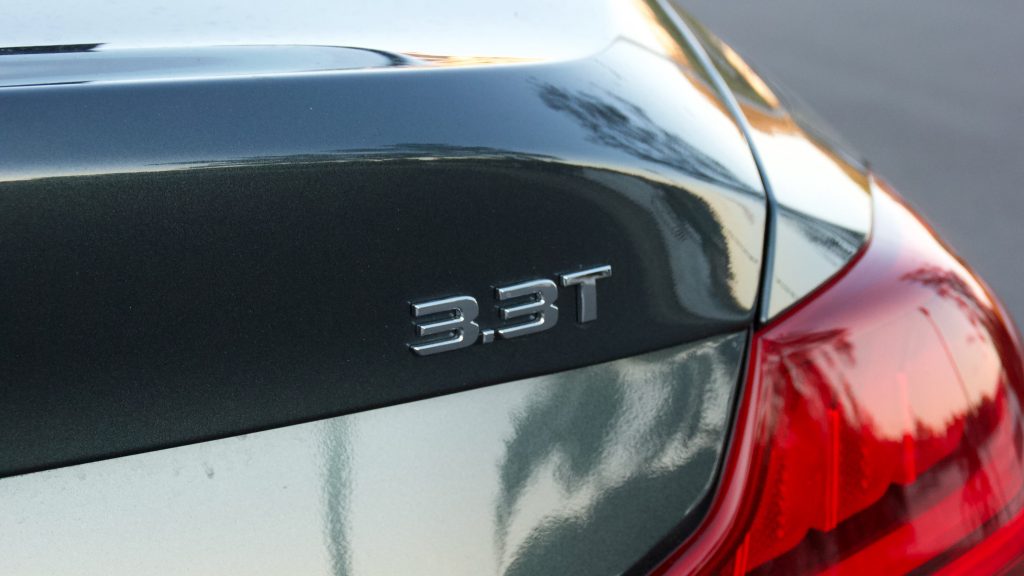
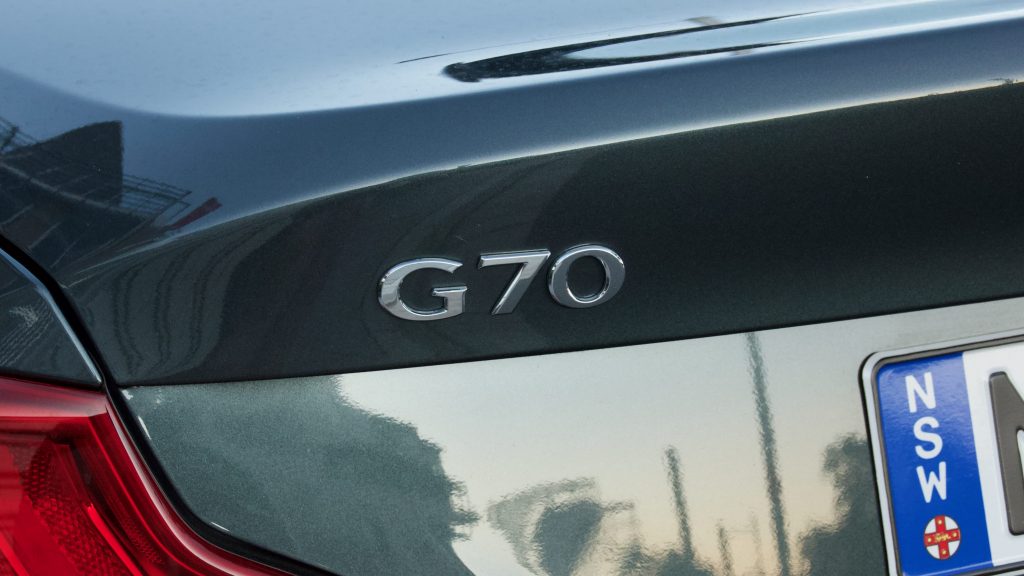
You can read a more detailed breakdown of the pricing and specifications in our review of the 2020 Genesis G70 2.0T, but all models come equipped with seven airbags, high- and low-speed auto emergency braking (AEB) with pedestrian detection, adaptive cruise control with stop and go functionality, blind-spot monitoring with rear cross-traffic alert, lane keep assist and auto high beam.


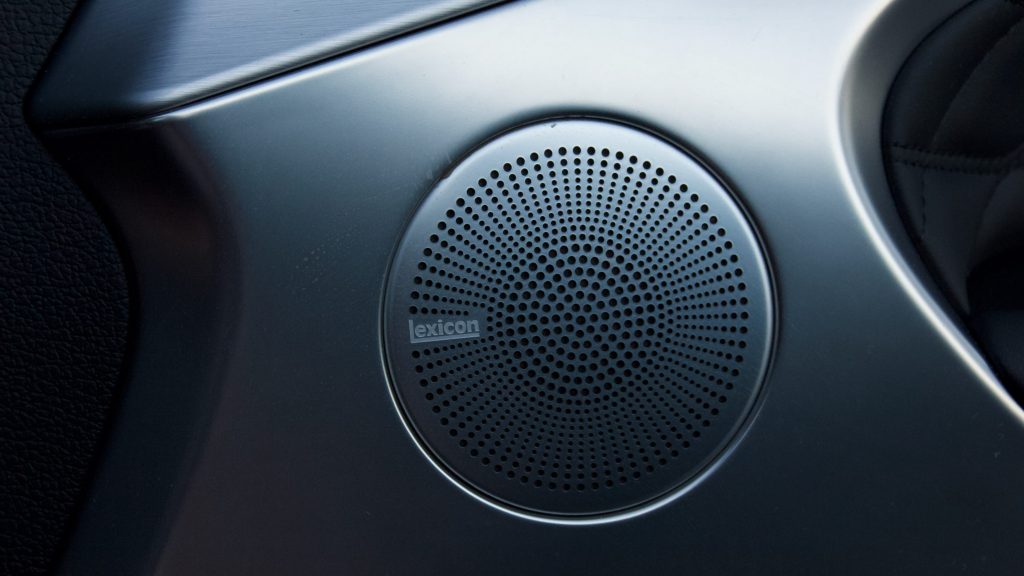
Our 2020 Genesis G70 3.3T Ultimate comes in at $79,950 plus on roads and is fully loaded – scoring all-LED exterior lighting bar the rear indicators, 19-inch alloy wheels with Michelin Pilot Sport 4 tyres, Brembo brakes and a mechanical limited-slip differential, a variable steering rack and torque vectoring. Inside you get upgraded to Nappa leather upholstery with 16-way driver’s memory electric adjustment, a heads-up display, a 360-degree parking camera, front cornering lights, a sunroof, a 15-speaker Lexicon sound system, heated and cooled front seats with heated rear seats, a heated steering wheel, a power-adjustable steering column, an 8.0-inch touchscreen with inbuilt nav and digital radio, Apple CarPlay and Android Auto, proximity keyless entry and start with auto boot release, heated/auto-folding mirrors with puddle lighting, a panoramic sunroof, a wireless phone charger and selectable driving modes hooked up to fully adaptive suspension.
The only notable spec omissions that are offered by rival brands include rear AEB, matrix lighting and turn collision assist.
Performance & Economy: 8.0/10
The G70’s 3.3-litre twin turbo petrol V6 will sound familiar to our DiscoverAuto readers because we’ve tested this engine before in a different car. The familiar Hyundai-Kia Lambda engine is the exact unit as the Kia Stinger’s V6 and is good for an identical 272kW and 510Nm. It’s also paired with the same slick-shifting eight-speed torque converter automatic transmission, albeit with a Genesis-specific calibration. Like the Stinger, the G70 is available with all-wheel drive overseas but is a rear-wheel drive-only proposition in Australia.
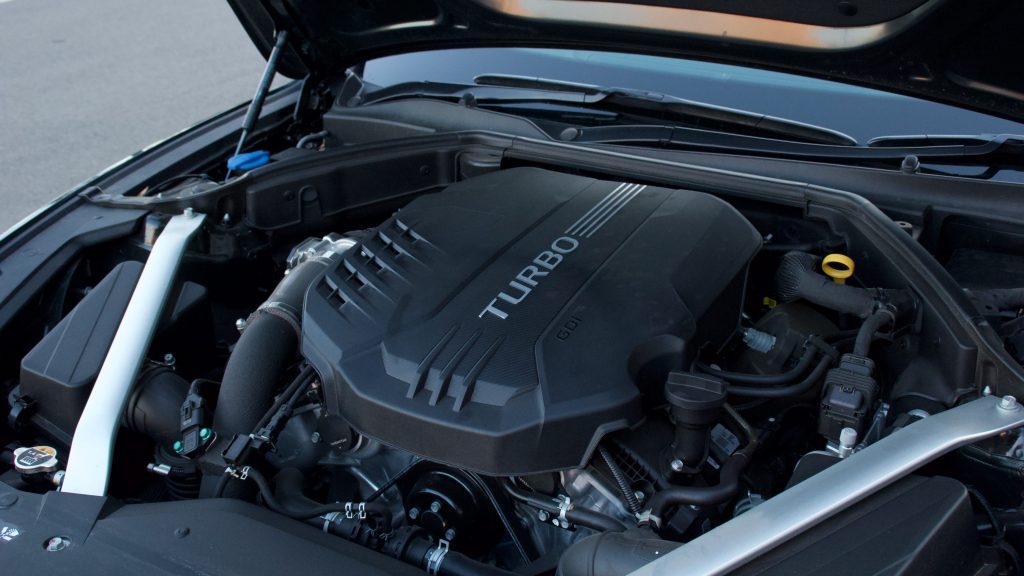
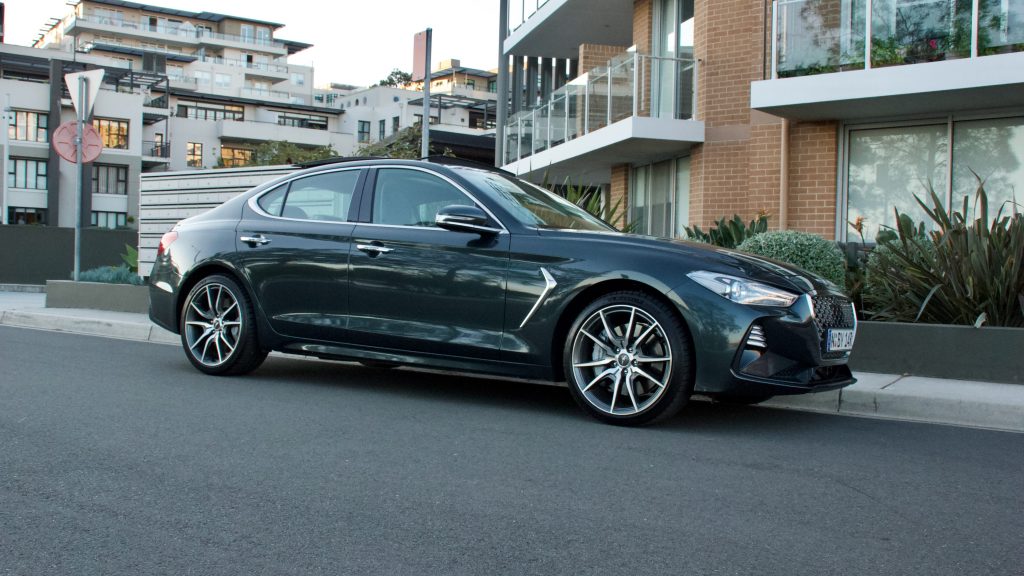
The first thing that is apparent behind the wheel of the Genesis G70 is how hushed and refined the drivetrain is. The G70 doesn’t come with an active exhaust, nor does it feel like it needs it. The G70 offers a more serene and polished ambience versus its cheaper cousin. Plant your foot to the floor and the V6 makes itself heard, not in a loud or obnoxious way, but in a forceful-yet-effortless manner. 0-100km/h is dealt with a brisk 4.7 seconds and the 510Nm means you rarely need to flick to a lower gear when overtaking.
“Plant your foot to the floor and the V6 makes itself heard, not in a loud or obnoxious way, but in a forceful-yet-effortless manner.”
When the car needs to swap cogs, the automatic transmission does its best to keep up with your driving style. In normal or comfort mode, you hardly notice the car swapping gears, whereas sport mode holds onto gears that little bit longer to keep the engine in its sweet and most potent spot. In saying that, holding onto gears can get annoying and sees fuel consumption soar, so it’s best to leave the transmission in normal or comfort mode. Like the Stinger, the G70 lacks a true manual mode which might leave enthusiastic drivers a little frustrated.
“Like the Stinger, the G70 lacks a true manual mode which might leave enthusiastic drivers a little frustrated.”
When considering the G70, it’s worth weighing up how important fuel economy is to you. In the 3.3T V6 we averaged 13.5L/100km versus Genesis’ claimed figure of 10.2L/100km. In the G70 2.0T we managed to keep that figure below 10.0L/100km, which isn’t great but noticeably better than the V6. It would definitely benefit from fuel-saving tech that some of its European rivals use, such as stop/start systems. By comparison, a BMW M340i claims to consume 7.7L/100km despite offering more power and all-wheel drive.
Ride & Handling: 9.0/10
The 2020 Genesis G70 is Genesis’ sporty executive sedan with a greater emphasis on driving thrills than its cushy big brother, the Genesis G80. Being based on the same platform as the Kia Stinger, the G70 already had a good starting point in terms of driving dynamics, but its more compact dimensions (being 145mm shorter than the Stinger) helps the G70 be a more agile car. While the Stinger drives like a true grand tourer, the Genesis G70’s ride and handling takes more inspiration from European sporty sedans like the BMW 3 Series.
“…the Genesis G70’s ride and handling takes more inspiration from European sporty sedans like the BMW 3 Series.”
It all starts with the perfect driving position – low with your legs and arms stretched forward to the wheel. In comfort mode you can tell that the ride is firm yet compliant enough – giving in over bumps and ironing them out without ever losing composure or feeling floaty. This comfortably firm approach is accentuated by the direct and precise steering that feels instantly natural and predictable.
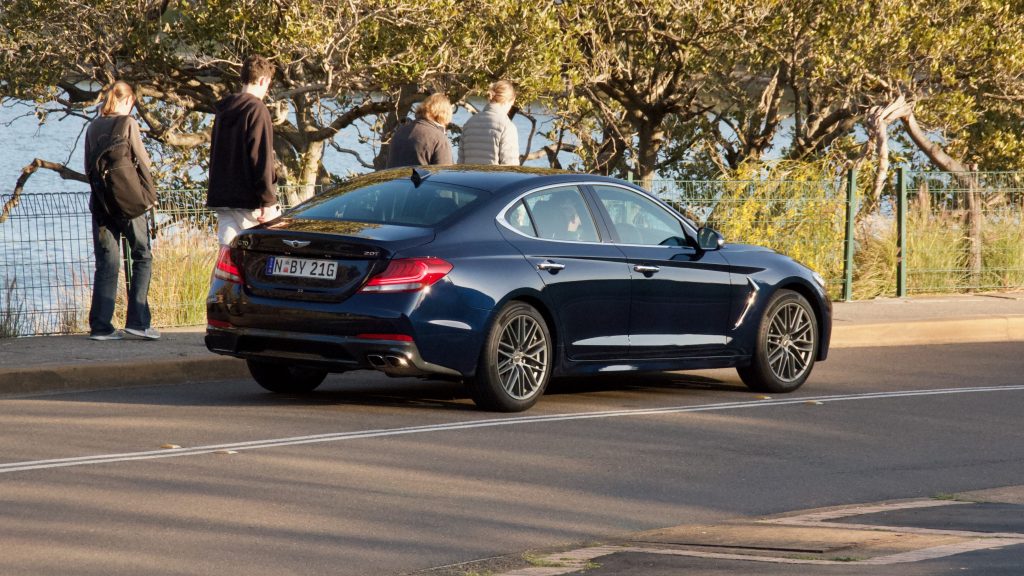
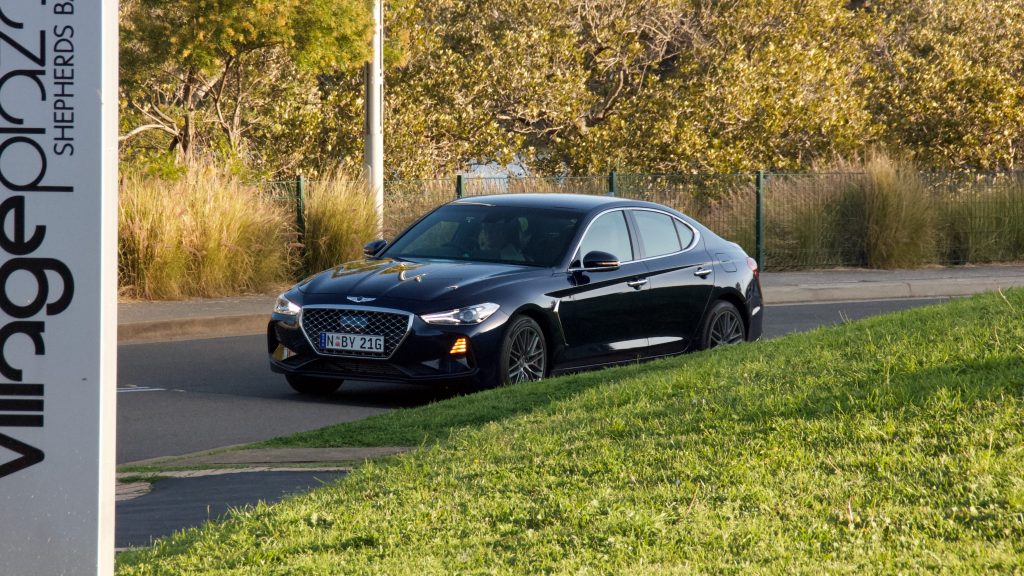
Flick the drive mode selector into sport and you’re greeted with a firm hug from the side bolsters (again, like its cousin) and the suspension firms up noticeably. It only takes a few twisty bends to notice how beautifully balanced the G70’s chassis is. The sticky Michelin tyres in a staggered 225/40R19 (front) and 255/35R19 (rear) setup offer loads of grip and help keep the front end pointy despite the extra weight of the V6 over the four cylinder. The V6 also does a better job of getting the G70’s rear end to step out and get a bit playful – effortlessly breaking traction before the electronic nannies quickly rein in the fun. The 4- and 2-piston Brembo brakes also pull up the Genesis with reassuring tenacity.
“It only takes a few twisty bends to notice how beautifully balanced the G70’s chassis is.”
The sedan body style, rather than a coupé-like liftback, means that manoeuvring the sporty sedan is easier than expected. Visibility is good if not excellent (thanks to those hefty C-Pillar blind spots) but the 360º camera makes parking a breeze. It even allows you to pick a view, such as a kerbside wheel view to make sure you don’t kerb those beautiful 19-inch alloys. The Genesis G70 does an excellent job of aping European sports sedans that have had decades to perfect the formula, but one of its minor drawbacks is the tyre roar that comes in from that 19-inch rubber. It’s the only chink in an otherwise serene and engaging driving experience.
Interior & Practicality: 7.0/10
The G70’s interior is a lovely place to spends time with a delightful eye-catching design and lush materials. The Ultimate adds full Nappa leather in a quilted pattern over the base model, adding to the high-quality feel of the interior. One of the great benefits of choosing a luxury car is the greater array of customisability and choice in colours. The 2.0T G70 we drove showcased this with a beautiful Walnut Brown (tan) leather which looked decidedly expensive against the deep blue paintwork. Our 3.3T Ultimate feel decidedly more somber thanks to the charcoal Nappa leather, but it still managed to looks striking thanks to the unique Black Forest Green paintwork.
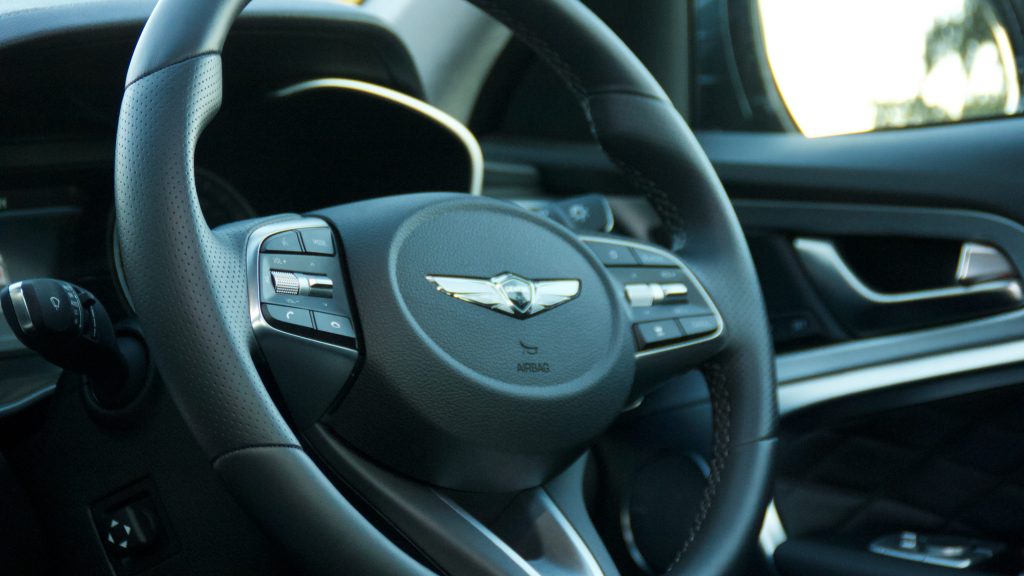
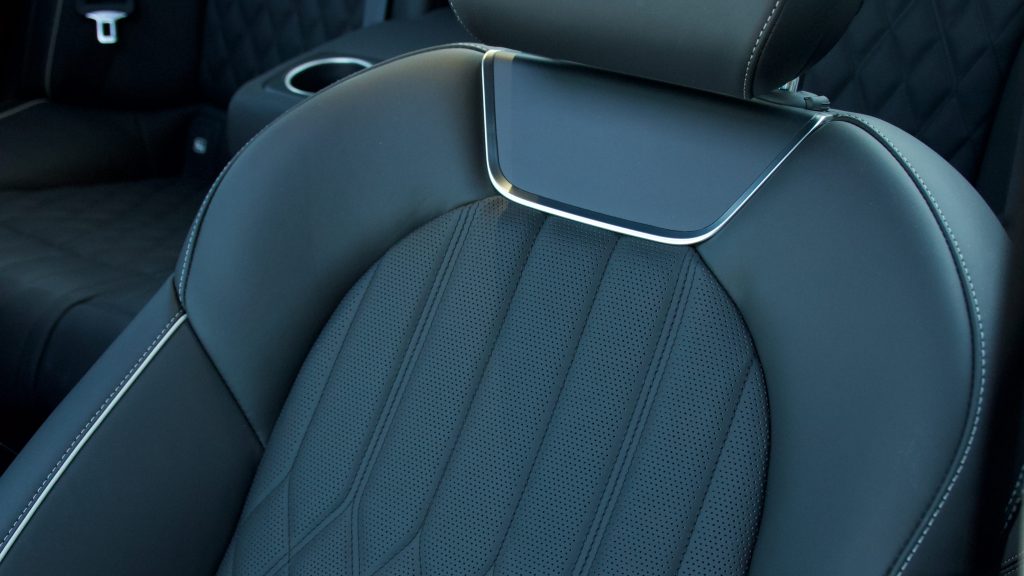
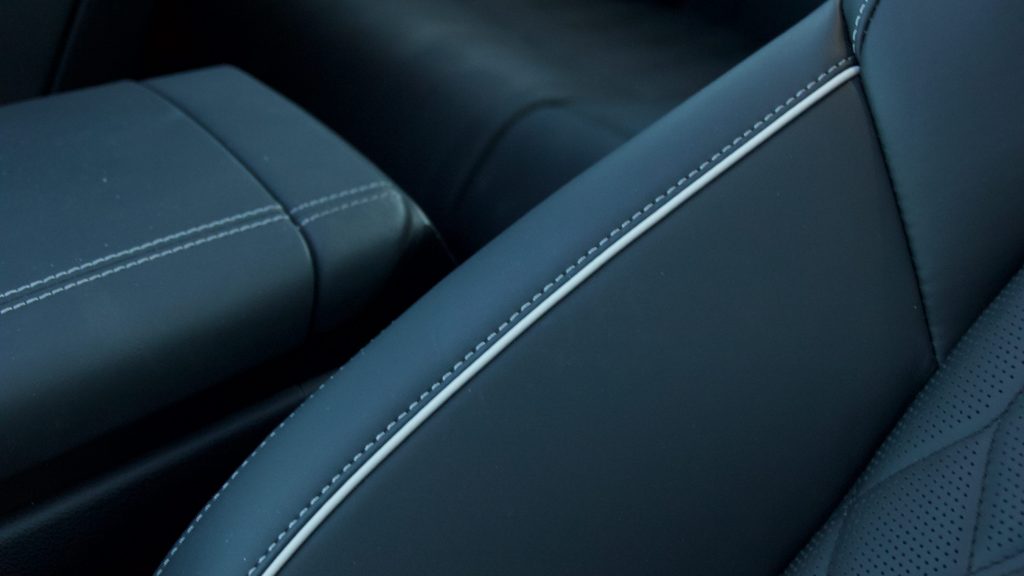
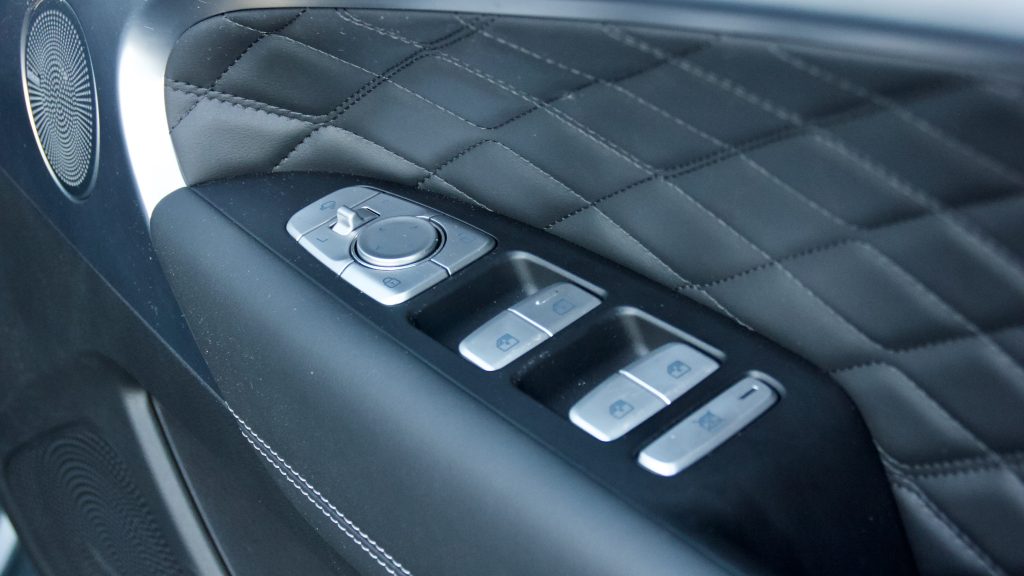
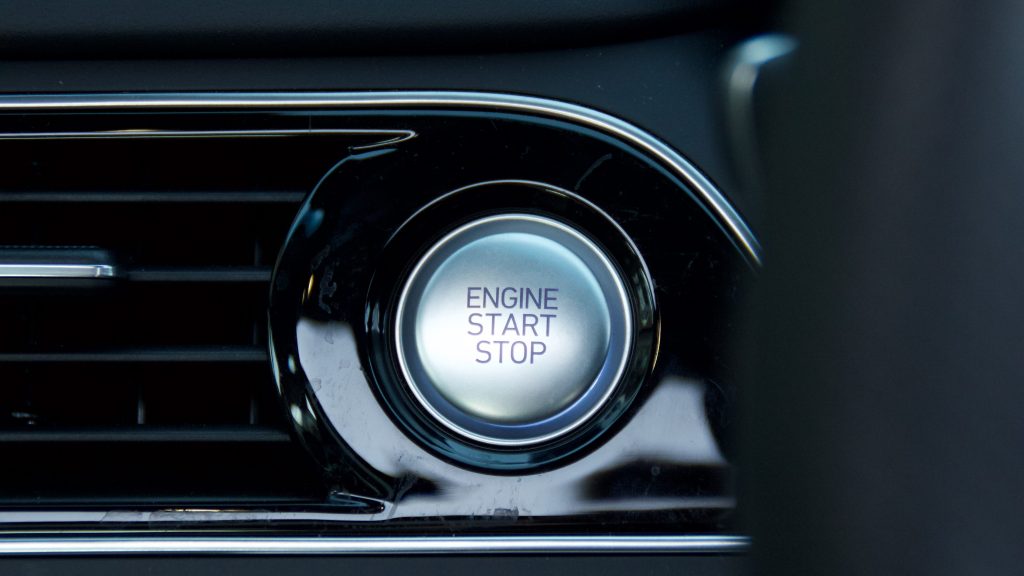
The rest of the interior materials are of a high quality, including soft-touch plastics, leather and lovely metal highlights. The only let downs are touch points that look decidedly Hyundai. The 8.0-inch infotainment touchscreen doesn’t look as slick as you’d expect from premium rivals and the climate controls look like they could have come straight out of a Santa Fe.
“The only let downs are touch points that look decidedly Hyundai.”
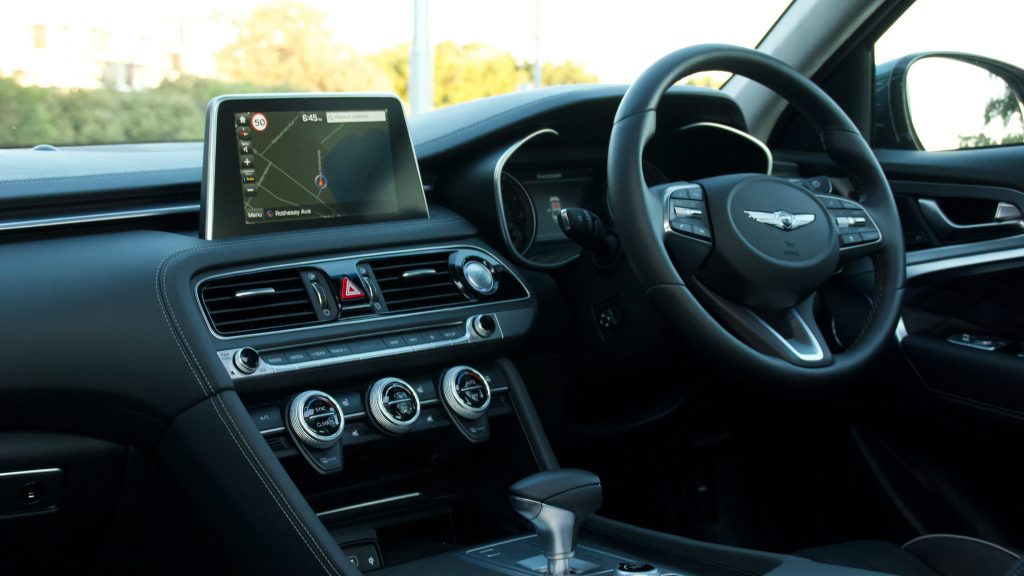
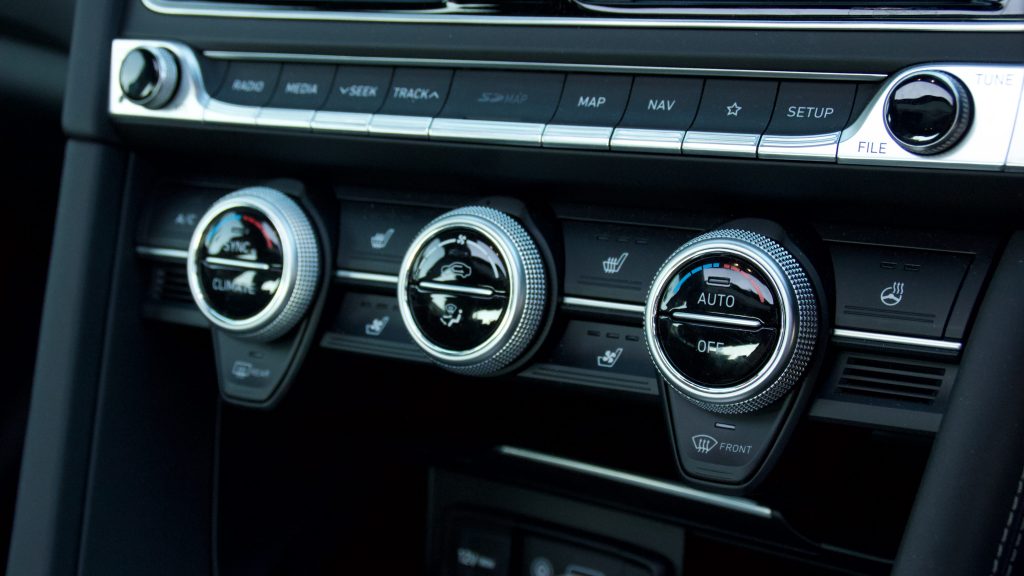
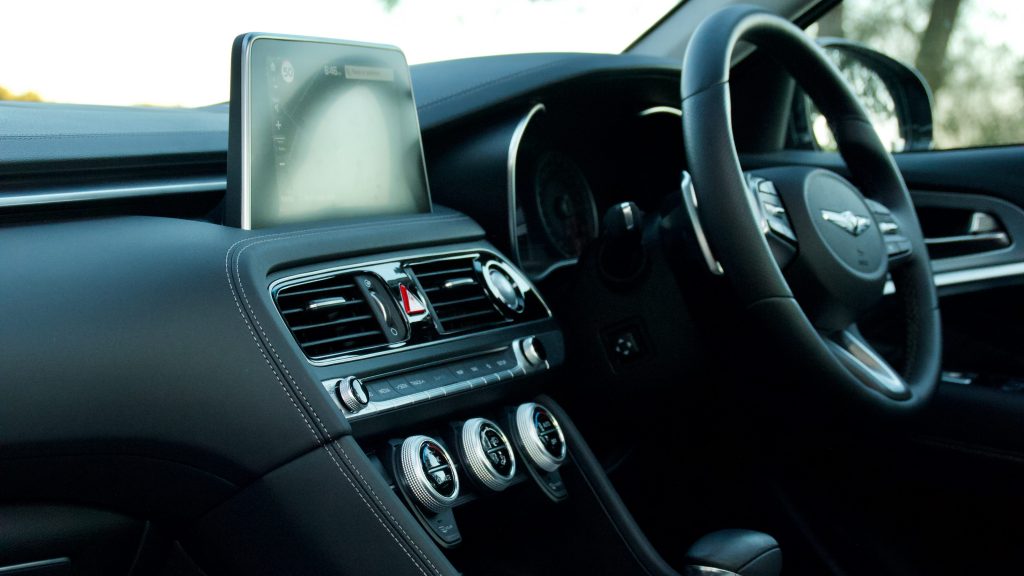
The 8.0-inch infotainment touchscreen also struggles to distinguish itself from the current crop of Hyundai products with a rather un-premium user interface. It is logically laid out, but falls short in terms of slick operation or surprise-and-delight features. Minor glitches like the audio for Apple CarPlay dropping out when switching between drive modes were discouraging to see, and could be enough to wilt confidence in the newcomer. At least it comes with a full armoury of built-in navigation, Apple CarPlay and Android Auto, a wireless phone charger, a 15-speaker premium sound system by Lexicon, and a comprehensive heads-up display. Ultimately (no pun intended), the new GV80 and G80 twins do a better job of differentiating their interior switchgear from Hyundai’s parts bins, further creating a bespoke luxury feel. They also introduce new goodies like a 3D fully-digital driver’s display, which we will see in the upcoming facelift of the G70.
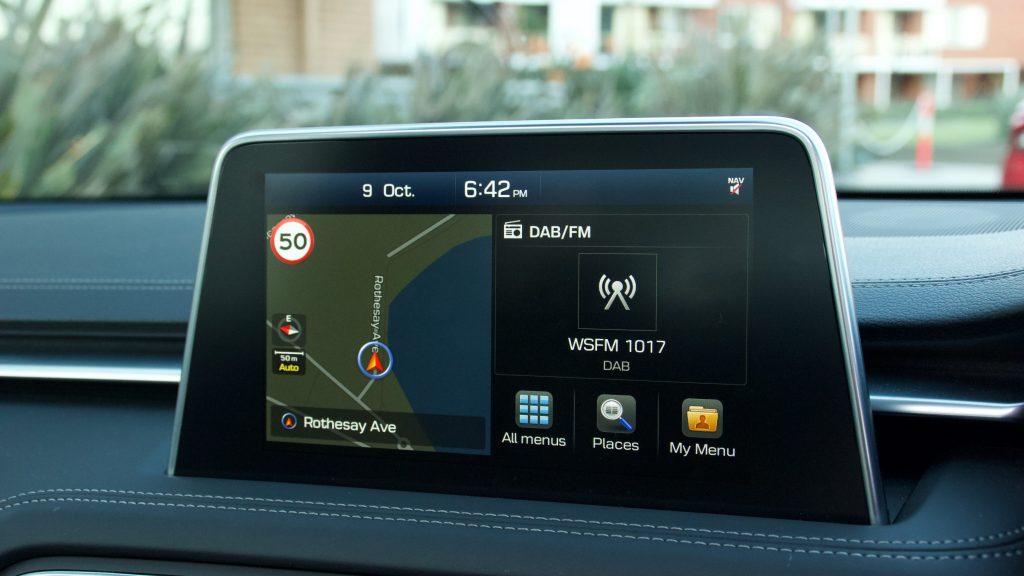
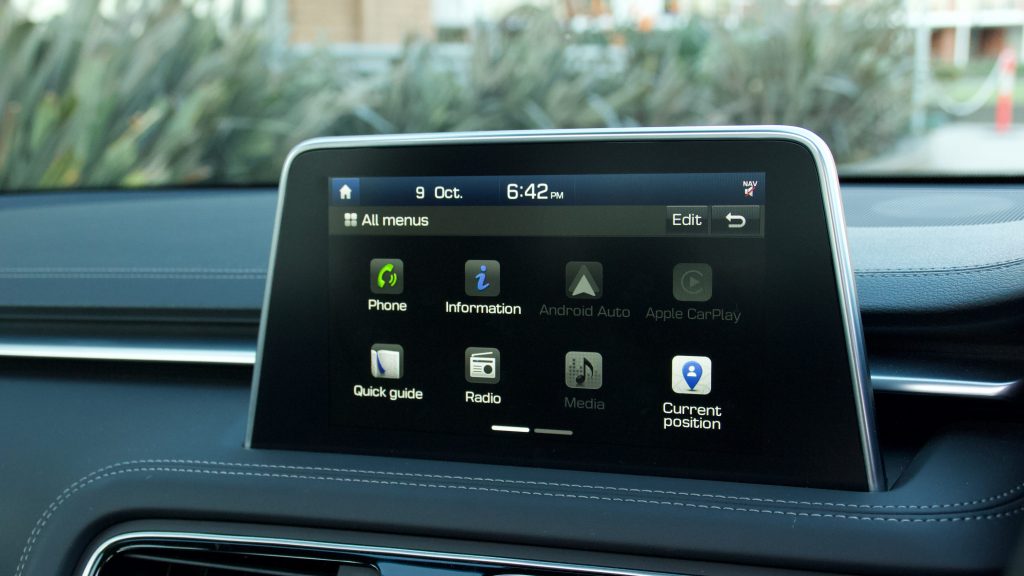
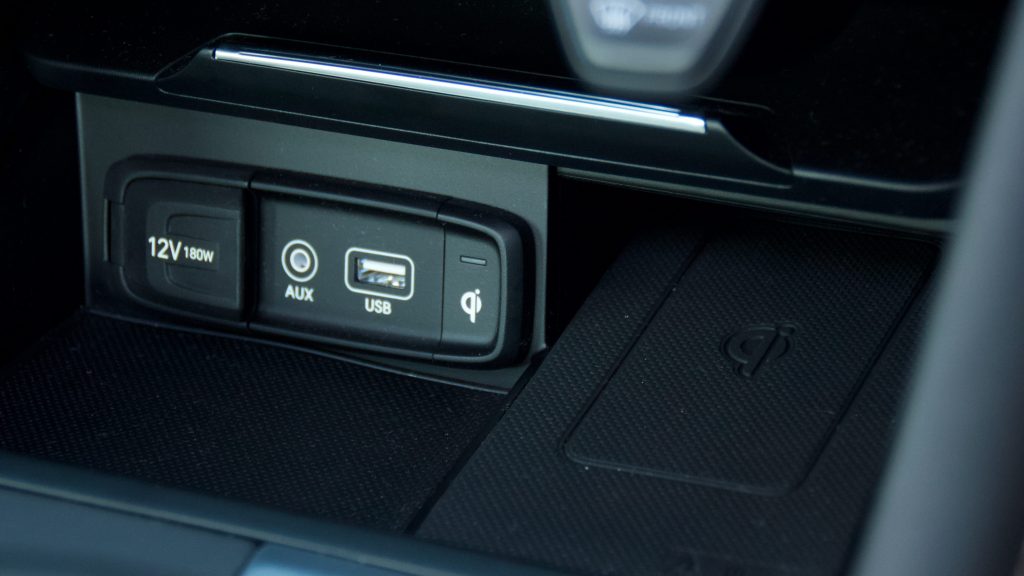
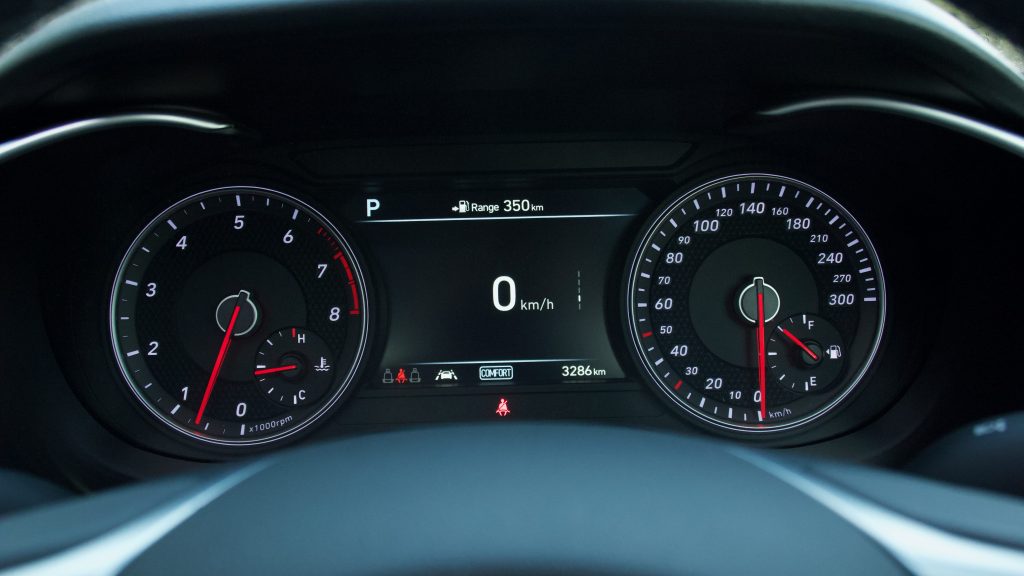
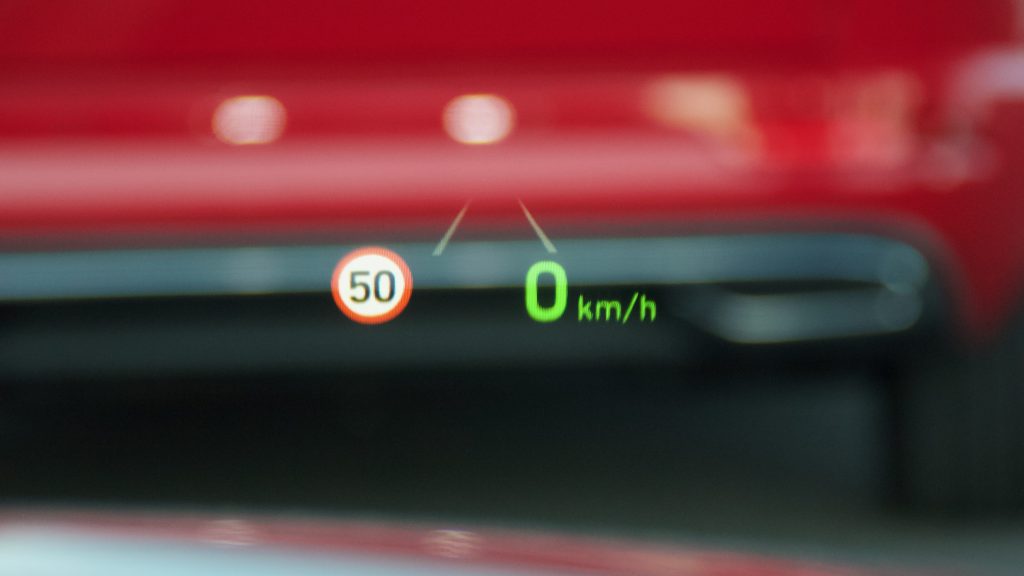
As previously mentioned, the driving position is spot on for a sporty car but the low-slung driver’s seat can impose on rear seat legroom. Adjust to a more upright position to accomodate rear-seat passengers and taller drivers will notice that headroom is limited thanks to the sunroof. While space is at a premium, rear-seat passengers do however get rear vents and USB points to charge their devices.
“…the driving position is spot on for a sporty car but the low-slung driver’s seat can impose on rear seat legroom.”
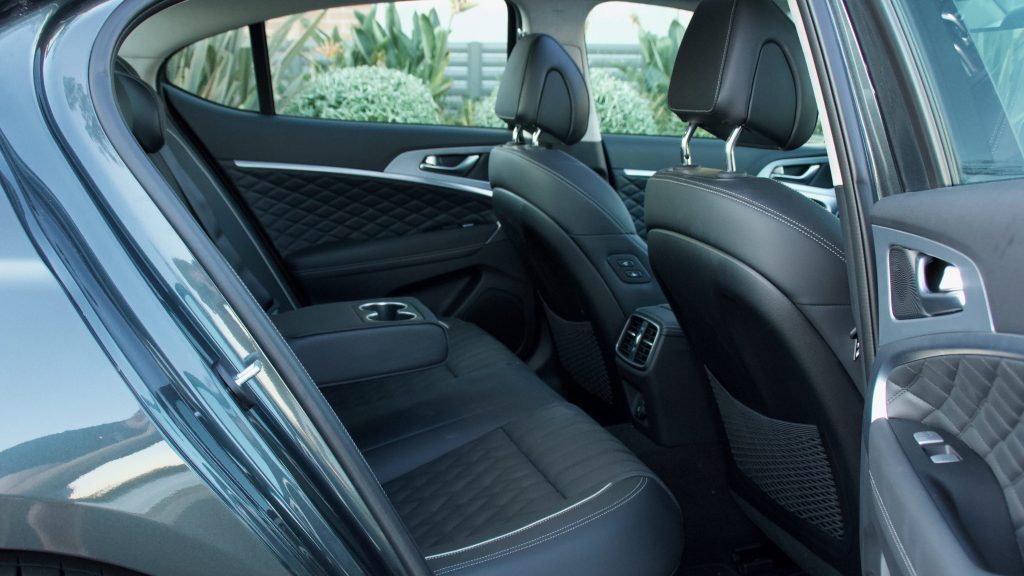
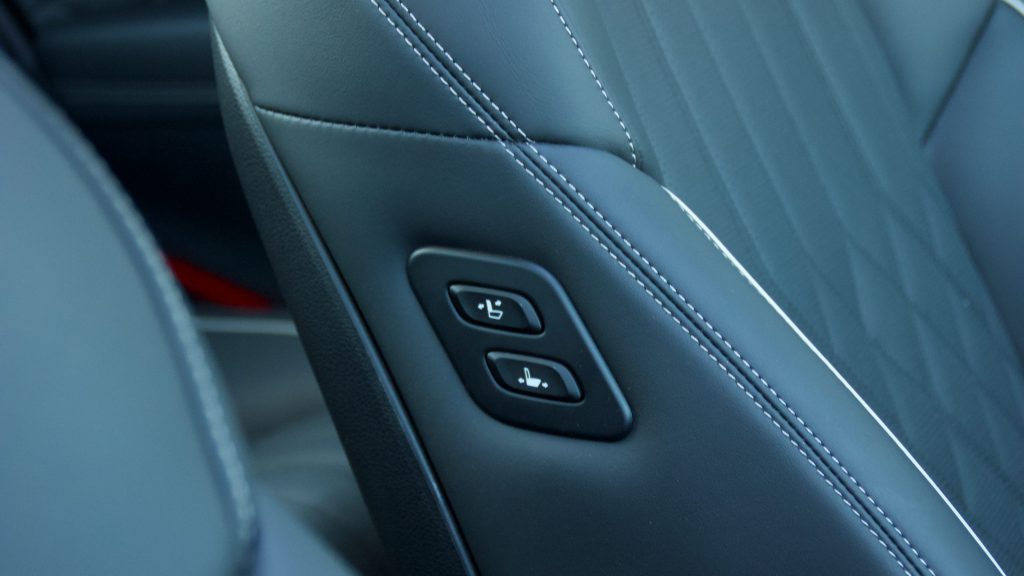
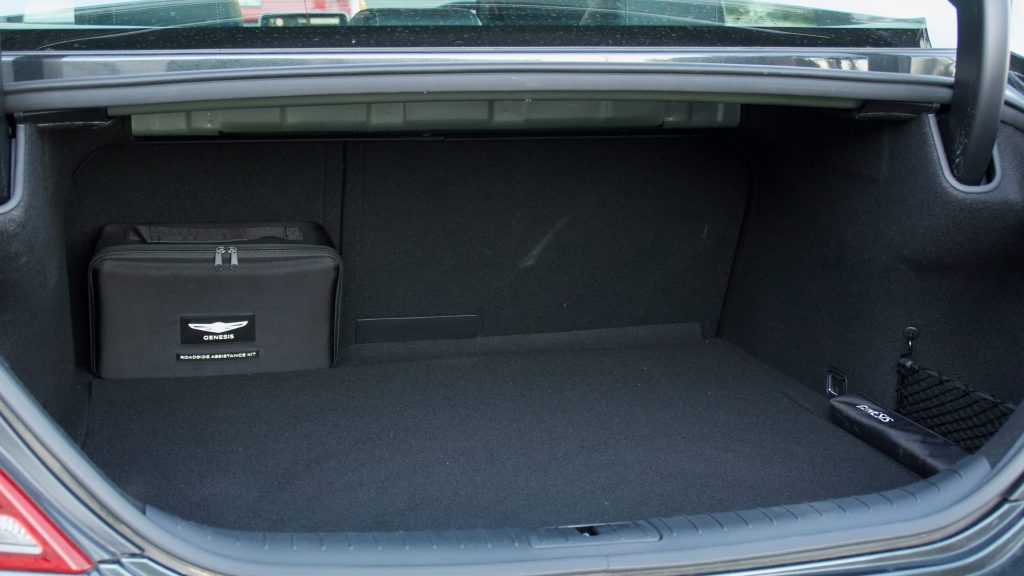
The compact executive sedan market has never been about practicality, but the boot in the G70 is also rather tight and shallow – offering just 330-litres. The BMW 3 Series easily trumps it with 480L. Its Kia cousin also beats the G70 (despite riding on the same platform) with the Stinger offering a wide-opening electric hatchback that opens to 406L.
Running Costs & Warranty: 9.0/10
Genesis offers excellent ownership credentials with a five-year/unlimited km warranty and five years of roadside assistance. This is supplemented by five years of free servicing as standard rather than a temporary offer like many brands do. The only drawback is that you can only cover 10,000km between services as most manufacturers move to 15,000km intervals, some even greater.
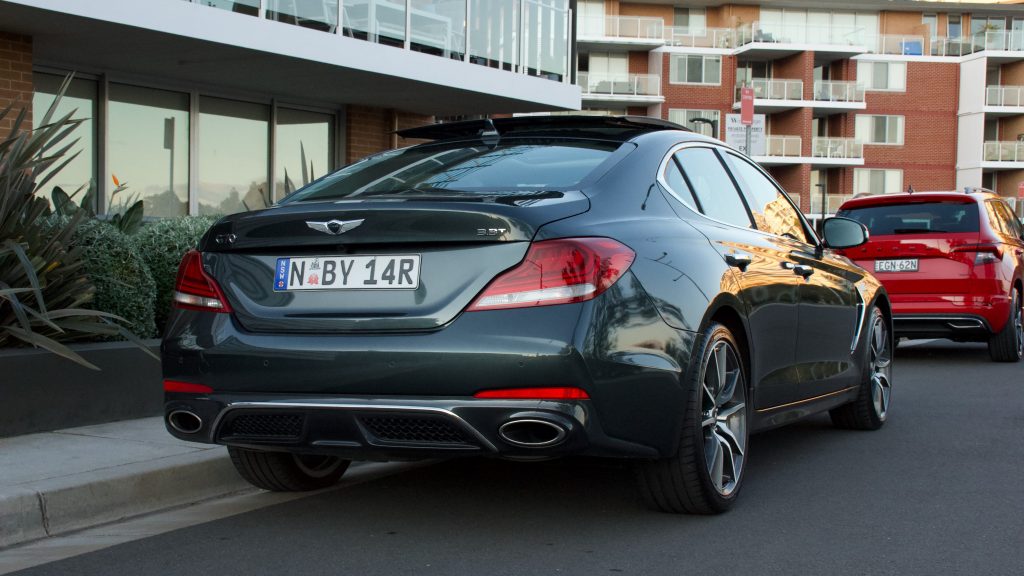
This drawback is somewhat alleviated by the fact that Genesis will deliver a loan car to your home (within 70km of a service centre) and take your car away, bringing it backed serviced and cleaned. Buyers can also access to the Genesis Connected Services app, which allows owners to remotely perform functions – including starting your car or flashing the hazard lights – and book a service.
2020 Genesis G70 3.3T Ultimate DiscoverAuto Rating: 8.0/10
The 2020 Genesis G70 is a serious contender and proof as to how quickly the Genesis brand is improving. Genesis has managed to build a sporty executive sedan that can mix with the best despite being a new player on the scene. Even more exciting is to see how its new array of models are shifting away from following design trends to forging its own path and further developing its own definition of what luxury can be.
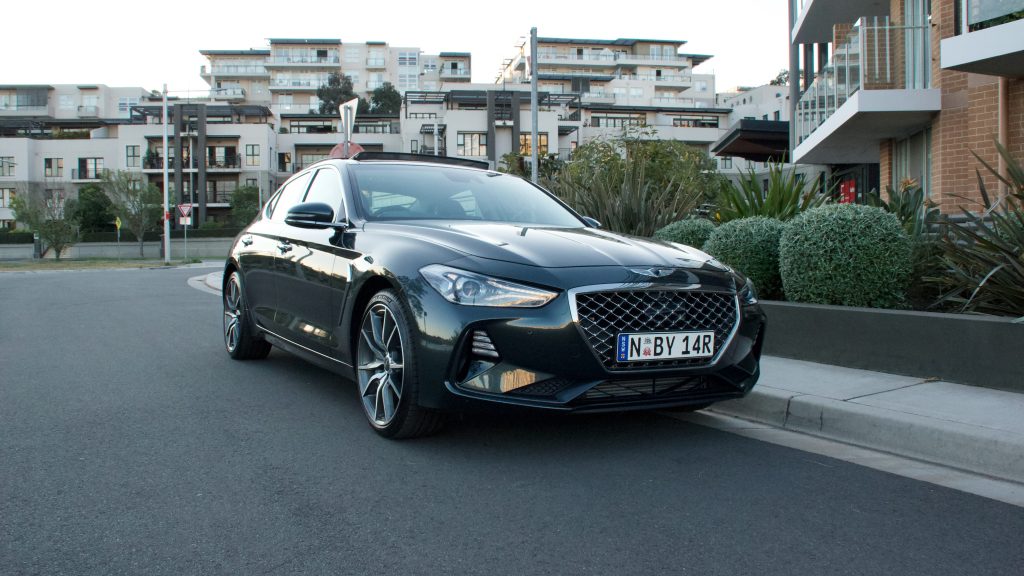
Where the current G70 falls short are its short service intervals, thirsty drivetrain and certain low-rent finishes in the cabin. While the upcoming facelift will not only rectify these minor issues, but also bring a bold new design to the characterful and resolved chassis, the current model is still strikingly handsome and a serious contender for the status quo. Team that with the delightful twin turbo V6 and the Germans better watch their backs.
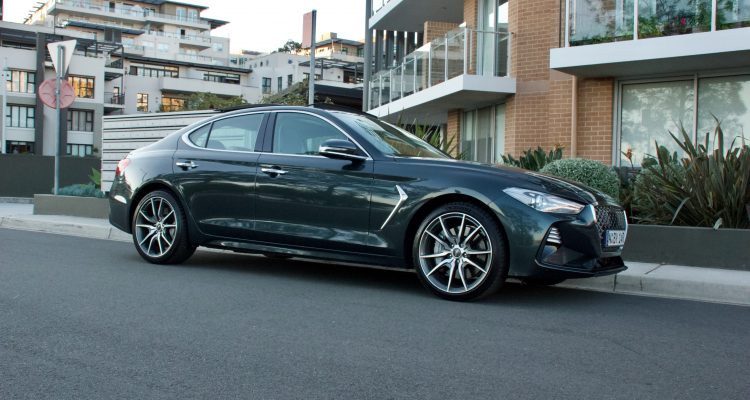
Leave a Reply